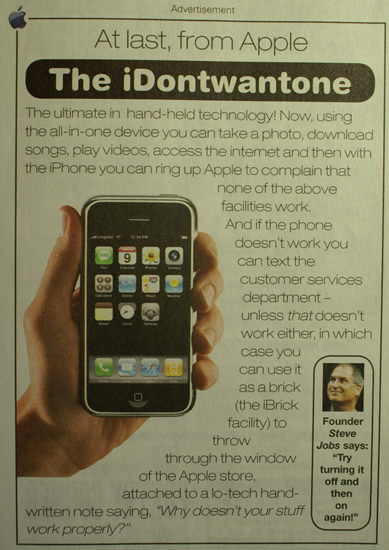 Kodak has today announced a new range of All-In-One Inkjet printers promising to reduce the cost of home printing by using pigment based inks and special paper.
Kodak has today announced a new range of All-In-One Inkjet printers promising to reduce the cost of home printing by using pigment based inks and special paper.
The company is claiming that their new printers will be able to output “Kodak lab-quality” photos at home using premium, pigment-based inks for up to half the price of their competitors.
Boldly claiming that their new range will change the inkjet market forever, Kodak boss Antonio M. Perez insists that his company is, “changing the rules in this industry,” giving consumers, “the freedom to print documents and photos frequently, easily and affordably with exceptional quality that lasts a lifetime under typical home display conditions.”
(We can’t help notice the king size caveat about, “typical home display conditions” contained therein. What on earth are they, we wonder?!).
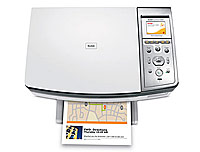 Kodak’s new range starts at $150, with the top of the range 5500 model offering a scanner, document feeder, fax and LCD display for $300.
Kodak’s new range starts at $150, with the top of the range 5500 model offering a scanner, document feeder, fax and LCD display for $300.
The inks will cost $15 for the colour cartridge (good for over 100 4×6 prints) and $10 for the black cartridge (which keeps on rocking for 300 pages).
The Kodak Easyshare range
The Kodak Easyshare 5100 All-in-One Printer ($150), offers print, scan and copy capabilities, and can print and copy up to 32 pages per minute in black and 22 pages per minute in colour
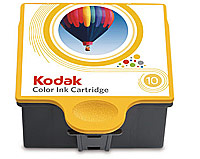 Based on the same specs as the 5100, the Kodak Easyshare 5300 All-in-One Printer ($200) bolts on a 3-inch colour LCD display and memory card slots for direct photo printing.
Based on the same specs as the 5100, the Kodak Easyshare 5300 All-in-One Printer ($200) bolts on a 3-inch colour LCD display and memory card slots for direct photo printing.
The top of the range Kodak Easyshare 5500 All-in-One Printer ($300) ramps up the feature set, offering all the features of the 5300, plus fax functionality, a 2.4-inch colour LCD display, an automatic document feeder and a duplexer attachment.
The printers will start to appear in US stores from March onwards, with the 5500 shipping in May 2007.
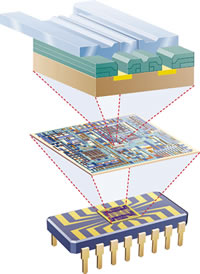 Both IBM and Intel have announced what they are calling major jumps forward in the design of microchips.
Both IBM and Intel have announced what they are calling major jumps forward in the design of microchips.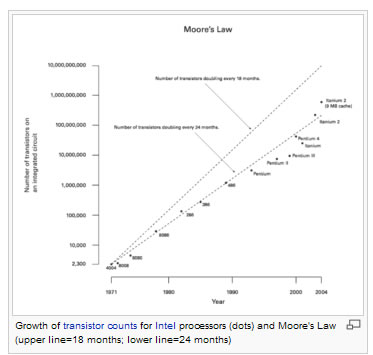
 Electronics giant PC World has announced that it is to stop selling floppy disks once the current stocks run out.
Electronics giant PC World has announced that it is to stop selling floppy disks once the current stocks run out.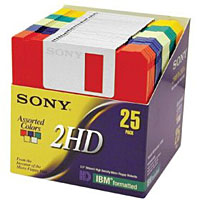 In decline since the late 1990s, the floppy once ruled supreme, shifting more than two billion units in 1998 – a figure now down to a measly 700 million last year.
In decline since the late 1990s, the floppy once ruled supreme, shifting more than two billion units in 1998 – a figure now down to a measly 700 million last year.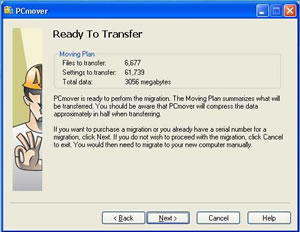 Getting a new machine with a new operating system is both a joy and a pain. The joy is the shiny new OS you have to play with and the likelihood that it runs considerably faster than the previous machine. The pain, is trying to make sure you’ve remembered all of the little bits of data tucked away in forgotten corners, and usually having to reconfigure all of your settings back to the way you had them on your previous machine.
Getting a new machine with a new operating system is both a joy and a pain. The joy is the shiny new OS you have to play with and the likelihood that it runs considerably faster than the previous machine. The pain, is trying to make sure you’ve remembered all of the little bits of data tucked away in forgotten corners, and usually having to reconfigure all of your settings back to the way you had them on your previous machine.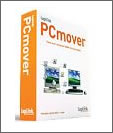 Beyond this, you can choose from a wired/wireless network for top speed, or resort to a USB 1.1 or a parallel cable. There’s also an option to use removable media such as a CD-R or DVD-R.
Beyond this, you can choose from a wired/wireless network for top speed, or resort to a USB 1.1 or a parallel cable. There’s also an option to use removable media such as a CD-R or DVD-R. Firm believers in technology being used to add something, not being used for the sake of it, we also think there are some areas that technology should stay out of.
Firm believers in technology being used to add something, not being used for the sake of it, we also think there are some areas that technology should stay out of. There are just too many risks to let this go ahead.
There are just too many risks to let this go ahead.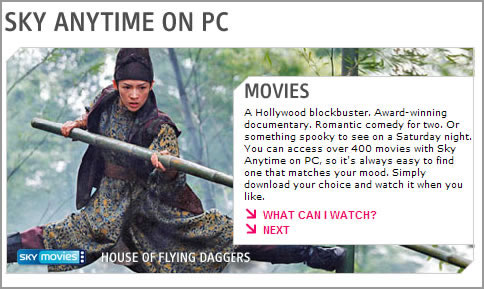
 Backstory
Backstory To be frank, by the end of the program I was grateful to her. The sight of the fantastic disdain of Ken Russell made it worthwhile in itself.
To be frank, by the end of the program I was grateful to her. The sight of the fantastic disdain of Ken Russell made it worthwhile in itself.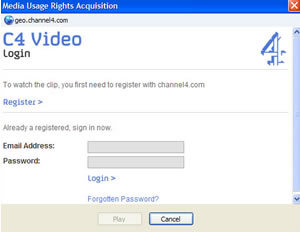 It appeared that finally Endemol had got a quality production team behind this one, lead by an intelligent director.
It appeared that finally Endemol had got a quality production team behind this one, lead by an intelligent director.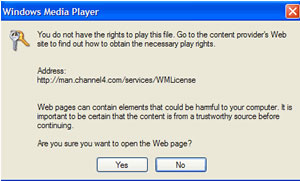 Navigating through their home page to the CBB page; click on the “Watch 24/7” link; then the “Already own the pass” link. This pops up a new window with a form requesting sign up detail (despite the link being specific about already owning a pass).
Navigating through their home page to the CBB page; click on the “Watch 24/7” link; then the “Already own the pass” link. This pops up a new window with a form requesting sign up detail (despite the link being specific about already owning a pass).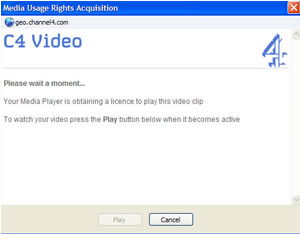 Clicking Yes takes you to yet another Web page, grandly entitled License Acquisition. Here you’re requested to login _again_.
Clicking Yes takes you to yet another Web page, grandly entitled License Acquisition. Here you’re requested to login _again_.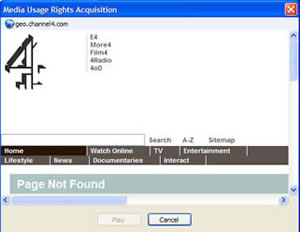 It’s not from lack of trying on their part either, Microsoft have been plugging away at their DRM solution for many years and, we have to assume, this is their latest as to get to view the streams, there’s a requirement to ‘upgrade’ your Windows Media Player to the latest version.
It’s not from lack of trying on their part either, Microsoft have been plugging away at their DRM solution for many years and, we have to assume, this is their latest as to get to view the streams, there’s a requirement to ‘upgrade’ your Windows Media Player to the latest version. Notebooks outsold desktop PCs in Western Europe for the first time, as Acer leapt ahead of Dell to grab second place in PC sales in Europe, the Middle East and Africa (an area known in da biz as ‘EMEA’).
Notebooks outsold desktop PCs in Western Europe for the first time, as Acer leapt ahead of Dell to grab second place in PC sales in Europe, the Middle East and Africa (an area known in da biz as ‘EMEA’).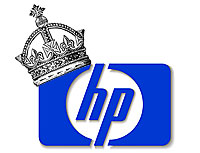 Laptop sales totalled 8.4 million during the quarter, against 8 million desktops, but corporate refresh cycles are expected to elbow desktop sales skyward in the second half of 2007 with Windows Vista expected to drive consumer – but not business – sales, as IDC’s Andy Brown explains:
Laptop sales totalled 8.4 million during the quarter, against 8 million desktops, but corporate refresh cycles are expected to elbow desktop sales skyward in the second half of 2007 with Windows Vista expected to drive consumer – but not business – sales, as IDC’s Andy Brown explains: Back in our day we lived in an old water tank on a rubbish tip and considered ourselves lucky if we ate two bits of cold gravel for lunch and had a broken pen for our school work.
Back in our day we lived in an old water tank on a rubbish tip and considered ourselves lucky if we ate two bits of cold gravel for lunch and had a broken pen for our school work. The Scottish initiative – costing £25 million – will see all pupils over the age of 10 in selected schools being handed shiny new PDAs, with 6,000 teachers also enjoying the freebie onslaught.
The Scottish initiative – costing £25 million – will see all pupils over the age of 10 in selected schools being handed shiny new PDAs, with 6,000 teachers also enjoying the freebie onslaught. The scheme will also provide free wireless Internet in a move to keep children interested in schoolwork by giving them online access to course material and homework.
The scheme will also provide free wireless Internet in a move to keep children interested in schoolwork by giving them online access to course material and homework.